News
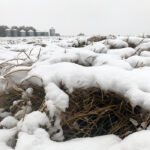
Problems confirmed in delayed canola harvest

Alta. fire destroys 6,000 hay bales

Wheat-bread price link denied

Large sugar beet pile rots in southern Alta.
Loss represents three percent of the total crop delivered in the province this year; it was likely caused by an October cold snap
A severe cold snap in October likely caused a large pile of sugar beets to rot in Burdett, Alta., said a local farmer. The beets have already been delivered and farmers will likely be paid for them, said Will Muller of Muller Ventures Inc. “But I’m not sure what’s going to happen yet.” Growers are […] Read more
Farm groups put pressure on provinces over AgriStability
Producers turn up the heat as they demand that provincial governments accept Ottawa’s business risk management proposal
Leaders of several Canadian producer groups called on provincial governments to accept Ottawa’s proposal to improve business risk management programs. During an end-of-year virtual meeting, Canadian Federation of Agriculture president Mary Robinson said federal Minister of Agriculture Marie-Claude Bibeau’s proposal to fix AgriStability, a leading irritant of the BRMs, “represents a fundamental shift in the […] Read more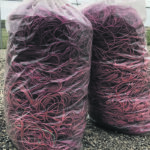
Ag plastics recycling expands on the Prairies
Cleanfarms wants a program in Manitoba, saying farmers there generate about 1,400 tonnes of agricultural plastic waste a year
Cleanfarms has launched a baler twine recycling pilot project in Saskatchewan and is consulting on a permanent agricultural plastic waste recycling program in Manitoba. The organization says it wants to transition Manitoba’s pilot project into a permanent, province-wide program in 2021. The first draft of its plan to do so is available on its website, […] Read more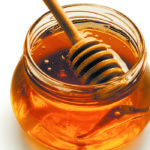
Feds continue to crack down on fake honey
Eighty-seven percent of honey samples in CFIA’s most recently reported testing was authentic, up from 78 percent a year earlier
Fake honey remains a massive problem for beekeepers around the globe. But recent data shows the amount of fake honey imported or sold within Canada is on the decline. Fake honey is made by adding corn syrup, rice syrup or another sweetener to genuine honey. Between April 2019 and March 2020, the Canadian Food Inspection […] Read more
WTO in crisis mode as free trade regime unravels: CAFTA
Export group says 93 governments have implemented more than 200 restrictions and measures that affect trade
The World Trade Organization is operating in crisis mode in an attempt to protect the rules of trade, which are under siege, says the Canadian Agri-Food Trade Alliance. “Many in Geneva and others around the world have worked to protect the rules, save the system and literally hold it together,” CAFTA executive director Claire Citeau […] Read more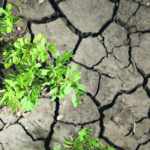
Climate change may affect water management
New report says Prairies will see wetter winters and drier summers, which will require changes in how water is managed
Western Canada is warming at three times the rate of the rest of the world and that will challenge people who live in the region, according to a report released Dec. 7. The Prairie Provinces chapter of the Regional Perspectives Report is the first in a series from experts across Canada to assess climate change […] Read more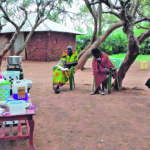
Project Toothpick helps farmers battle weed
The initiative aims to find a home-grown biocontrol inoculum for Striga, which threatens many of Africa’s staple crops
One of the world’s toughest weeds is literally getting a taste of its own medicine in Africa. Striga, a parasitic weed that has caused continued havoc on the African continent, is slowly but surely feeling the effects of an ingenious initiative — the Toothpick Project, now nearing commercialization. Striga (witchweed) is the No. 1 pest […] Read more




